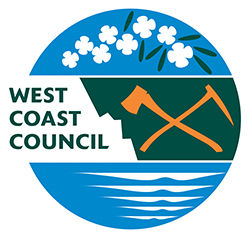The West Coast is one of the great walking areas in Australia with Frenchman’s Cap, parts of the Overland Track, the Next Iconic Walk and some of Tasmania’s best short walks within the Local Government Area. The Next Iconic Walk is in the final stages of a feasibility study.
The West Coast has the strategic aim of increasing participation in sport and recreation opportunities and of increasing its appeal as a tourism destination. Sport and recreation is supported by a Sport and Recreation Plan adopted by Council which emphasizes the importance of recreation using the West Coasts natural outdoor environment.
To support these aims the West Coast Council is seeking proposals to develop a Strategic Plan/Strategy to guide the future development of walks and associated infrastructure on the West Coast.
The strategy will need to:
- Identify walking market trends and demand gaps in, the region, Tasmania, and Australia, considering existing and known planned developments.
- Identify the West Coast’s unique competitive advantages in that market.
- The recreation needs of residents for walks.
- An assessment of current walks including usage and barriers to increased use.
- Possible new west coast walks opportunities.
- The connection between walks and other outdoor activities existing and planned and how walks and those other activities can compliment each other.
- Potential cultural and education benefits from walks.
- Visitor experience gaps
- How walks could lead to increased visitation (numbers and nights).
- The potential for multi-use trails.
- How walks could lead to increased participation in recreation.
In creating the Strategy and Project List the successful organisation will be expected to:
- Conduct relevant research incorporating previous research and data where available. Council will provide data its holds and introductions to other organisations that may hold relevant data.
- Engage with the local community to both identify potential projects and understand which projects would increase resident usage of walks.
- Engage with relevant stakeholders.
Relevant stakeholders include, but are not limited to:
- The Tasmanian Parks and Wildlife Service
- Bush walking Clubs
- Destination West Coast
- West by North West
- Hydro Tasmania
- Sustainable Timbers Tasmania
- Mineral Resources Tasmania.
The strategy should consider the relative benefits of:
- Upgrades to existing walking infrastructure.
- Upgrades to associated infrastructure (such a parking or signage).
- Improved information relating to walks.
- New short walks (less than a day).
- New multi-day hikes (cabins or camping).
- New walks to facilitate other recreational activities (fishing, kayaking, rock climbing).
- New walks to viewing areas or scenic spots or other attractions.
The Strategy should develop a list of projects based on an analysis of previous strategies and market information to identify a mix of projects that will provide achievement of the aims above. It should include relevant information on the market segments and requirements.
The project list should include consideration of:
- Upgrades to current walking trails.
- New trail construction.
- Upgrades to infrastructure associated with current or new trails (parking, signage, picnic areas, viewing areas, etc.).
- Creation of or upgrades to ancillary infrastructure (i.e. walking guides, web guides, directional signage, marketing).
The strategy should list all potential projects and provide a prioritised subset of at least $10 millon of projects.
The strategy will be expected to provide cost estimates and schedules (low-median-high) with references to the methodology for the estimate. For larger projects such as multi-day hikes, there should be a broad estimate of total cost and the cost for the next stage of feasibility studies required.
It is expected that project proposals will include a proposed research methodology, stakeholder engagement plan, and community engagement plan and proposed timeline. Proposals should provide hourly costs and an estimated total project cost. It should be noted that the successful proponent will have access to data previously acquired by Council and related parties and this may assist in the project. Proposals should provide information on the proposed consultancy team and their experience relating to walks strategies.
Based on responses received the assessment of proposals may be based on this Request for Proposals or occur in two steps with an initial assessment and short listing, before inviting preferred providers to further clarify their proposal before a final procurement decision is made.
Proposals are especially encouraged from organisations with relevant experience relating to walks and hiking.
Proposals are due on 19 March 2021.
Proposals should be marked PROPOSALS – Walks Strategy and Project Action Plan and sent to West Coast Council PO Box 63 QUEENSTOWN TAS 7467 or via email to wcc@westcoast.tas.gov.au, for further information please call (03) 6471 4700.
This project is support by the Commonwealth Government.
